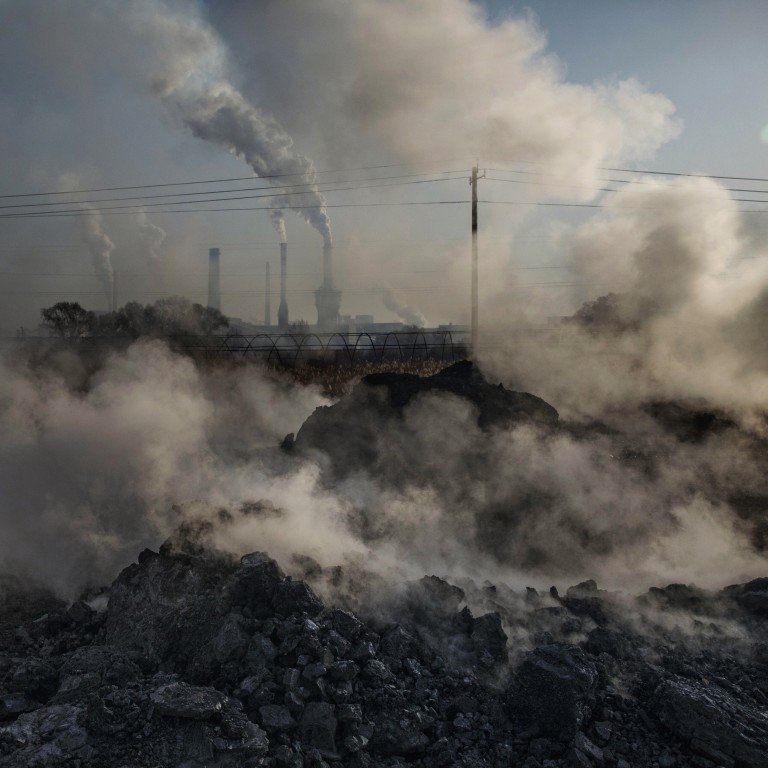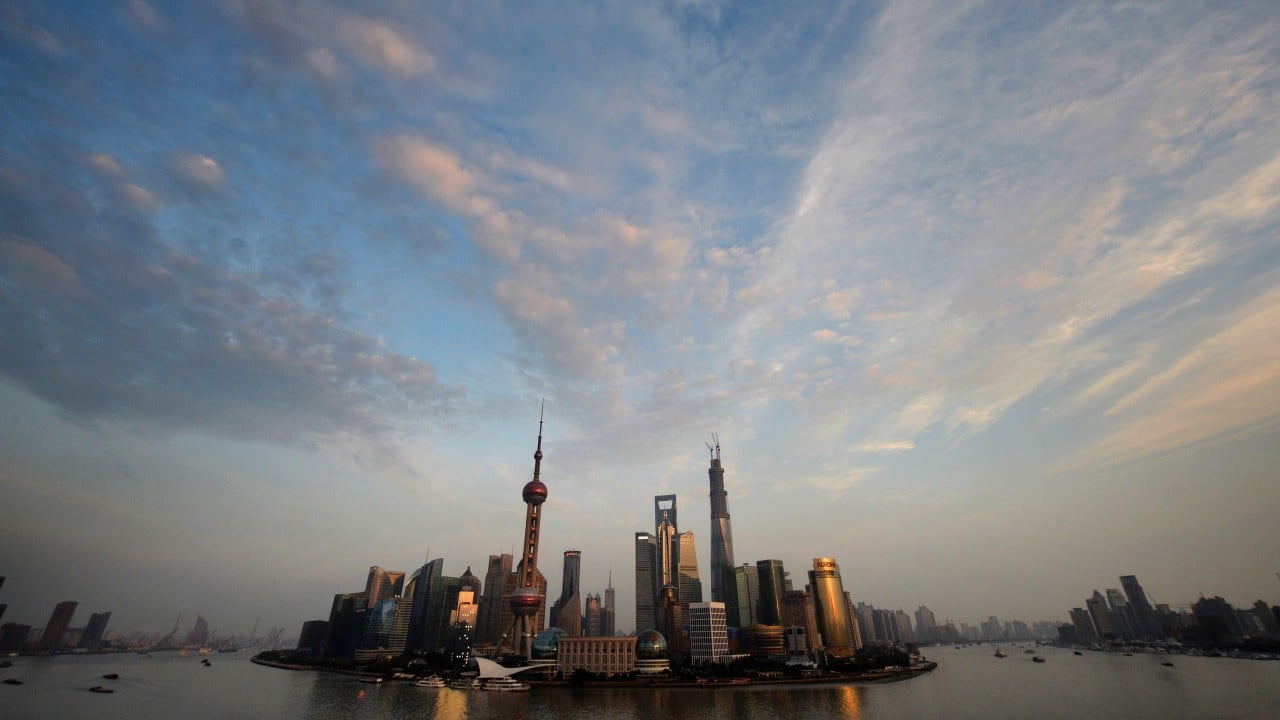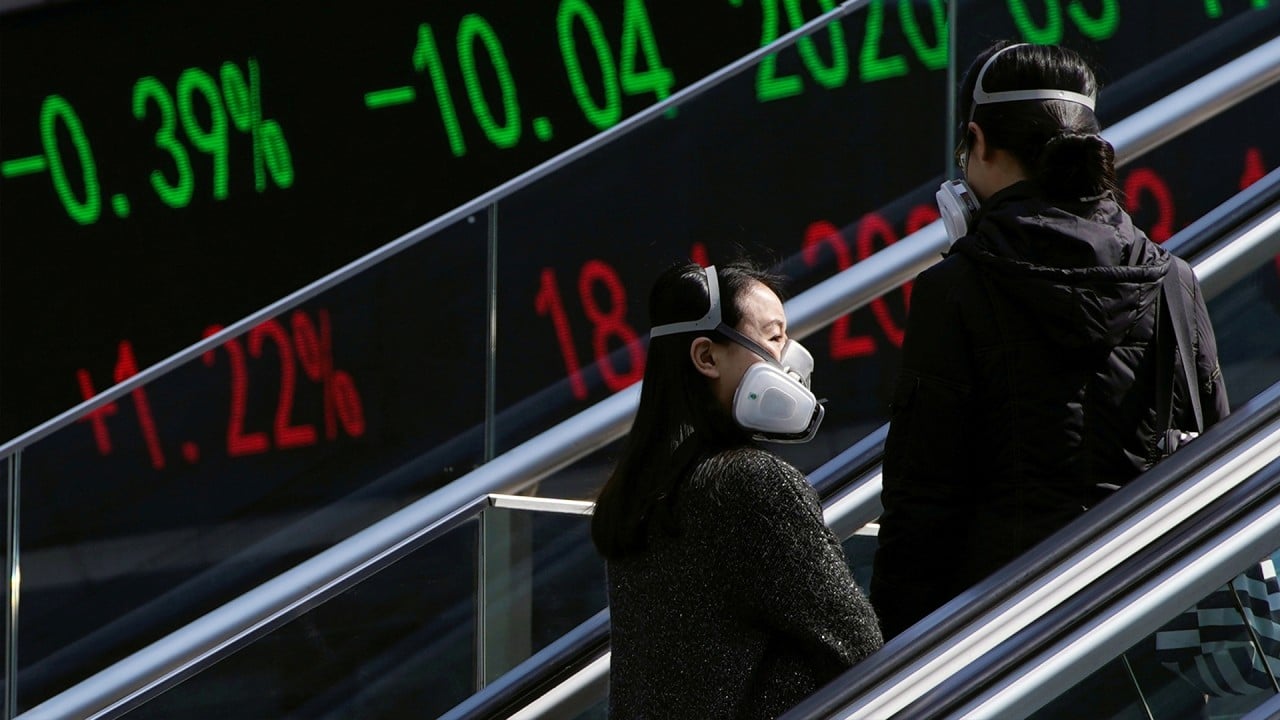
China’s decision to drop economic growth target is a blessing in disguise
- The more Beijing weans itself off growth as the economic metric, the freer it will be to concentrate on the environment, health and education
- Growth targets inevitably lock developing countries into a Western model of economic policy and a Western notion of how globalisation should work
But putting aside the reasons behind it, the decision to drop the growth target should be viewed as a blessing in disguise. The more Beijing weans itself off economic growth as the economic metric, the freer it will be to pursue more suitable and sustainable economic policies to better tackle the challenges China and the world will face in the 21st Century.

05:59
Coronavirus: What’s going to happen to China’s economy?
China’s economic growth lifted hundreds of millions out of poverty and helped develop strong manufacturing and hi-tech sectors: a feat unmatched by any country in modern history. Yet this growth has come with significant costs: unsustainable mega-cities, huge migrant populations, real-estate bubbles and environmental damage. One study found that 80 per cent of the country’s groundwater sources were unfit for human usage, and many Chinese cities still struggle with poor air quality.
A “growth-at-all-costs” mentality to meet GDP targets attracted massive FDI and in turn shaped how the private sector behaves. China’s struggles with food safety, industrial pollution and building standards are well-known. Much of China’s tech boom is built on contract and migrant labour, who deliver the goods and food sold on China’s digital platform, in the same way we see exploitation in other gig economies around the world. More recently, PPE and antibody tests sold by Chinese suppliers have been found to be of poor-quality, leading to angry calls and diplomatic spats. And Chinese companies operating overseas have been accused of causing environmental damage and cultural insensitivity.
Coronavirus has exposed the diseased heart of the global economy
But the preservation of the high growth target constrains these efforts as it would any country. Even though green targets have been introduced in recent years, provincial officials will always have to balance them with the need to keep growth high.
Even advanced economies have struggled with this balance, often offshoring their pollution overseas to countries like China. But if there is one country that must and can find an alternative to the growth-at-all-costs trap and the vicious cycle it perpetuates, it must be China, given its size and ability to formulate and implement long-term policies.

03:03
China’s first-quarter GDP shrinks for the first time since 1976 as coronavirus cripples economy
So if growth was no longer a political priority – let alone the only political priority – there would be more freedom on the part of economic planners to pursue a more balanced development programme. It will also allow China to reduce its dependence on extracting resources from around the world, the source of much criticism from its detractors.

Abandoning the growth target is not the same as targeting “zero growth”. China still has to grow its economy as it seeks to provide “moderate prosperity” to its entire population. Although China hopes to eradicate poverty by the end of 2020, hundreds of millions of Chinese have not tasted the benefits of prosperity. Only a few countries can feasibly target zero growth: advanced countries with high standards of living and, importantly, little-to-no population growth.
Instead, China would focus on how to improve overall well-being rather than growth by itself. That knowing the things that improve quality-of-life and increase self-sufficiency: environmental quality, public health, education, safe and secure employment through gainful work, good work-life balance, strong social and communal bonds, revitalisation and preservation of culture, rejuvenated landscapes and resources and so on. Efforts to improve in these areas would lead to “higher-quality” growth, ie growth more connected to improvements to living standards and human capital.
Why do Western environmental crises get more media attention than Asian ones?
In other words, growth is not the goal of social and economic policy; it is the by-product. Improved living standards will always lead to growth, but growth won’t always lead to improved living standards. Educated young Chinese do not become fodder for the growth machine but instead become human capital agents of change for a self-sufficient eco-civilisation.
There’s another reason to abandon the growth target. These targets inevitably lock developing countries into a Western model of economic policy and its notion of how globalisation should work within its rule book. A growth target invites observations and monitoring from international economic and financial institutions, which in turn guides foreign investment. This FDI then distorts the economy so they can better fit in the global system: local polluting manufacturing and “hands off” exploitation of labour through complex global supply chains, for example, rather than jobs that suit the public good.

05:02
Coronavirus backlash further fraying China’s ties to global economy
Once countries are in this system, they must remain a part of it. A failure to achieve the growth target is a warning sign to foreign investors as an indication of “poor economic planning”, making it less attractive to FDI. It also allows for the weaponisation of finance as we have seen. It’s a Catch-22: countries need growth to attract FDI to encourage more growth; failure to achieve growth means less FDI, making growth more difficult to achieve.
China, by dropping the growth target, could thus be a model to other large developing countries stuck in the pursuit of growth and the trap it sets. China can develop a new measure of general well-being, based on different targets to guide its economic planning towards an “eco-civilisation” and “moderate prosperity”. These might include:
1. Total employment and job creation through new non-growth driven sectors such as “ people caring” services.
2. Addressing the income difference between urban and rural communities.
3. Efficient resource usage with ambitious targets such as reducing energy intensity by 40 per cent over the next 10 years.
4. Air, water and soil quality improvements by building “green caring” sectors which are focused on large scale ecological restoration.
5. Universal to both basic needs and public services in keeping with “moderate prosperity” goals.
Breaking from the current orthodoxy about growth would be a true turning point in world economic history. It would be a break from Western economic theory, a decoupling that would be beneficial and a reshaping of how capitalism is viewed in the post-Western world.
Chandran Nair is the founder of the Global Institute for Tomorrow and member of the Club of Rome. He is also the author of The Sustainable State: The Future of Government, Economy and Society

